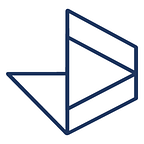Alumni Perspective: Diane Wang on Melding Design and Technology at Berkeley and in Business
Diane Wang is a Lead UX Designer at Google’s Daydream Labs, leading rapid prototyping efforts for AR/VR. She is passionate about designing across emerging mediums to create seamless, thoughtful, and desirable experiences. Previously, she was a UX Designer at Nest Labs, where she worked on experiences for the thoughtful home. Her work has received product design awards such as the iF Design Award, Red Dot Design Award, and D&AD Award. Diane has a Bachelor’s degree in Computer Science from the University of California, Berkeley.
We had an opportunity to speak with Diane about how her education at Berkeley and work at Jacobs prepared her for a career that marries human-centered design with emerging technologies.
You recently joined us for a Field Notes conversation at Jacobs Hall where you shared some of your projects exploring AR & VR at Google. Can you tell us a bit about yourself and your work?
I’m a UX lead at Google Daydream for a rapid prototyping group. Our team works to envision and discover compelling experiences at the intersection of AR/VR, other emerging technologies, and today’s technologies. I do a mix of establishing prototype directions, shaping narratives for new technologies, designing experiences for our concepts, and mentoring and teaching others. From a design philosophy standpoint, I strive to make experiences that are exciting, simple, useful, and human. I am constantly working with my team to find the perfect sweet spot between what’s technically new and what’s useful in people’s everyday lives.
Aside from my focus on my craft, I also am passionate about working with others, developing inclusive team cultures, and fostering spaces where individuals can productively discuss difficult topics in today’s evolving world.
My background is in Computer Science with a focus in HCI, and I like to drink coffee, draw, and experiment with the visual arts in my free time!
Can you tell us about your time at Cal? What experiences most informed the work you do today?
Of course! I received my undergraduate B.A. in Computer Science at Cal and had a great time learning about potential career paths and getting the opportunity to build upon my varied interests. What informed my work the most was understanding my interests that mix technology and the arts, and being able to pursue a career that aligns with that.
I took several HCI classes with Professor Paulos and Hartmann, where I learned about the current state of technology and its role in impacting our society and future. I also TA’d in CS160, where I learned to develop design thinking in others, and encourage a human-centered approach to technology. I use learnings from these experiences very regularly.
As a Computer Science major, what were the benefits of learning about design theories and methods as part of your education?
Learning about design helped me build a sense of empathy and a desire to leverage technology to improve the world we’re in today. It helped me bridge that gap between what I was building and how that relates to creating new experiences for people.
On a more practical note, I built a career in design and I definitely would not have been able to do that without foundational knowledge of the field and its methods!
What advice would you have for student designers interested in working with emerging technologies? What skills are you looking for in your collaborators?
My advice is to first experiment with the technologies themselves to gain a deeper understanding of them, and to also think through why you’re interested in specific technologies. Try to showcase that thinking in your portfolio and your interviews. In my collaborators, I’m always looking for people that are open-minded and strong communicators. To have an awesome portfolio, try to showcase projects where you work with others and highlight the dynamics of the collaboration.
Bonus — I was just chatting with my team and they passed along some advice as well! They mentioned to try to find ways to work with and understand the technologies that you’re interested in, even if there isn’t an explicit project or assignment. Try to showcase your passion and ability to make things happen in your portfolio.
